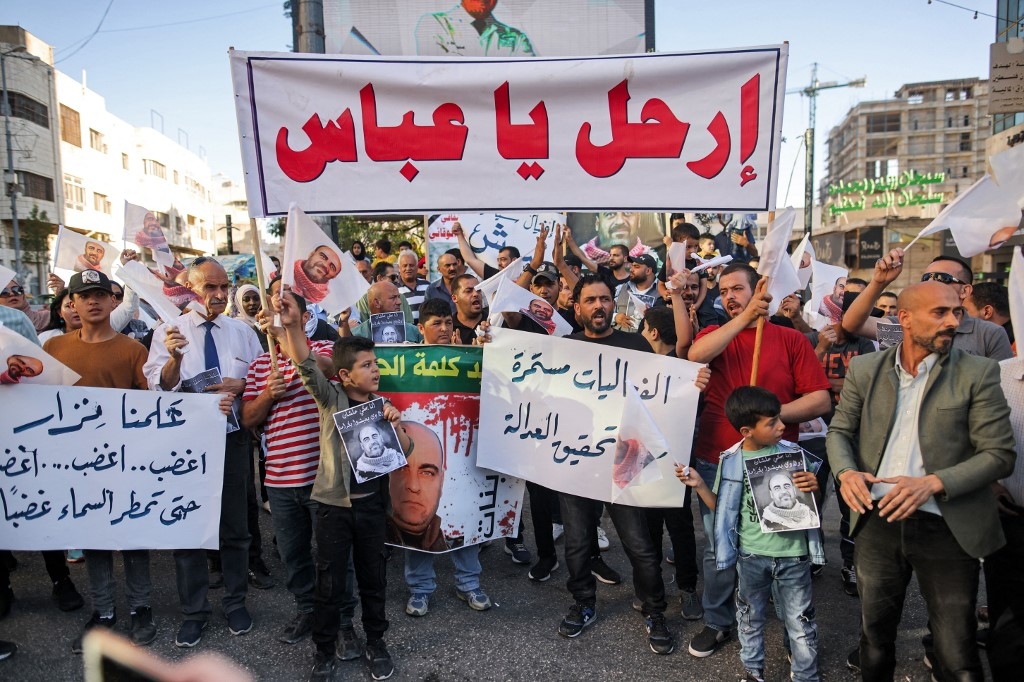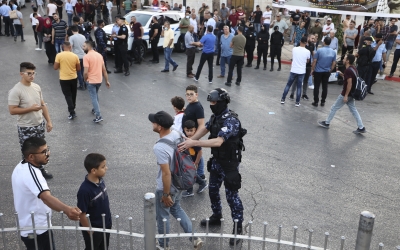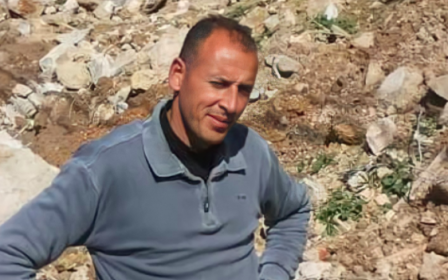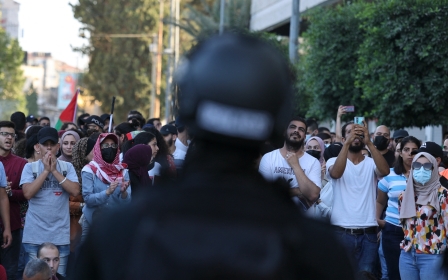Palestinian Authority deletes ‘freedom of expression’ from civil servants code of conduct

The Palestinian Authority has abolished an article from the Code of Conduct and Ethics for Public Service that allows employees to express their opinions freely.
According to the Official Gazette on Tuesday, a government decision has cancelled Article 22 of Cabinet Resolution No 4 of 2020 related to the code of conduct for civil servants.
The repealed article stated that “an employee has the right to express his opinion and publish it verbally, in writing, or by other means of expression or art, subject to the provisions of the legislation.”
The same article also stated: “The employee, when expressing an opinion, commenting, or posting on social media, must make it clear that he represents his personal opinion only, and (his point of view) does not reflect the opinion of the government entity.”
The decision comes as Palestinians continue to voice anger over the killing of outspoken political activist and PA critic Nizar Banat.
New MEE newsletter: Jerusalem Dispatch
Sign up to get the latest insights and analysis on Israel-Palestine, alongside Turkey Unpacked and other MEE newsletters
Since the killing of Banat, a political activist who died while in PA custody last month, a protest movement has emerged calling for the resignation of Abbas and Prime Minister Mohammad Shtayyeh.
While the PA announced an investigation into Banat's death, demonstrators have continued to protest for several weeks.
On Wednesday, the US permanent representative to the United Nations, Linda Thomas-Greenfield, denounced the PA’s “acting to restrict Palestinian freedom of expression and harass civil society activists and organizations.”
“That is unacceptable. In particular, we are deeply disturbed by the death of Palestinian activist Nizar Banat. The circumstances of his death must be fully investigated and those responsible held accountable."
Crackdown on PA opponents
Meanwhile, the PA has launched a crackdown on activists, with many arrested in recent months over their opposition to Abbas's rule.
In recent weeks, PA forces have been accused, among other things, of deliberately targeting women journalists covering the demonstrations, beating them, breaking their cameras, and threatening them with rape.
The PA was established in the wake of the 1993 Oslo Accords and initially intended to be an interim governing body until the establishment of a fully fledged Palestinian state.
But with a two-state solution never materialising, the PA - which exerts only limited control over around 40 percent of the West Bank, known as Areas A and B - has long been accused by many Palestinians of being an extension of the Israeli occupation, particularly with its policy of security coordination with Israel.
Abbas, meanwhile, has been in power since 2005. Though his term as president officially ended in 2009, the PA has not held presidential elections in 16 years.
While legislative elections and a presidential vote were initially scheduled for 22 May and 31 July respectively, they were postponed in April with no new dates set.
Middle East Eye delivers independent and unrivalled coverage and analysis of the Middle East, North Africa and beyond. To learn more about republishing this content and the associated fees, please fill out this form. More about MEE can be found here.





